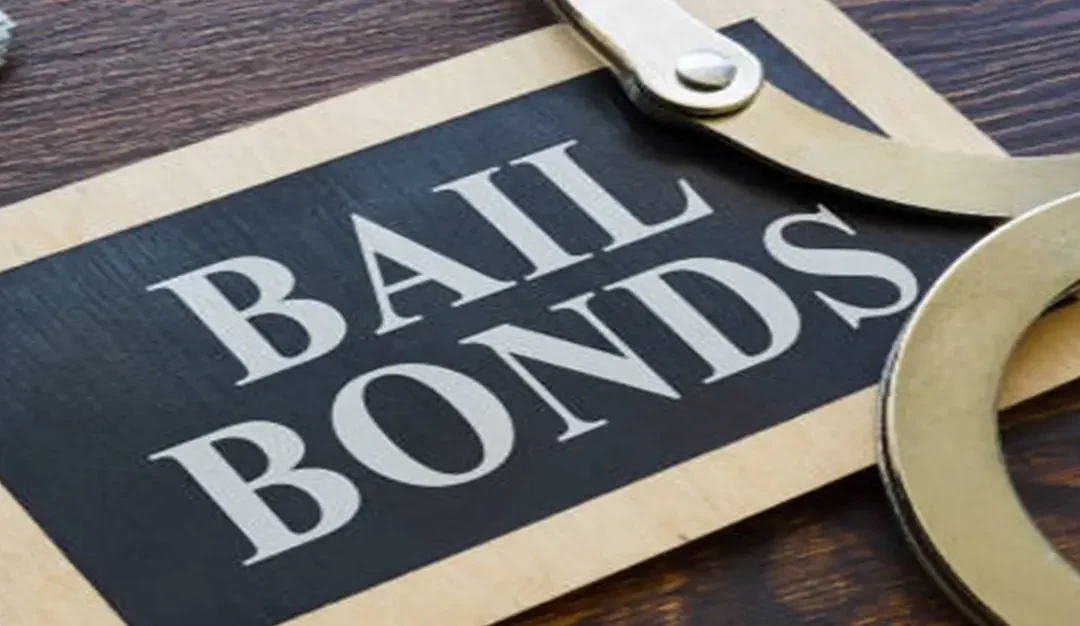How to Navigate the Intricacies of a Bail Bond: Tips for First-Time Users
Steering the intricacies of a bail bond can be frustrating for those strange with the procedure. Several new users discover themselves puzzled by the terminology and responsibilities included. Recognizing key principles such as costs and security is crucial. In addition, selecting a reliable bondsman can significantly alleviate the journey. There are essential facets and usual risks that can make complex issues further. Discovering these can offer beneficial understandings for any individual facing this challenging scenario.
Recognizing Bail Bond Terminology
What key terms should one recognize with when passing through the globe of Bail bonds? Comprehending fundamental terms is vital for navigating Bail bonds properly. The term "Bail" describes the quantity of cash or home required to protect an accused's launch from safekeeping, guaranteeing their look in court. "Bail bond" represents an agreement between the offender, the court, and a bondsman, that offers the Bail amount for a cost, generally 10-15% of the overall Bail. "Security" may be called for, entailing possessions promised to ensure repayment if the defendant stops working to show up (bail bonds service). "Premium" is the non-refundable fee paid to the Bail bondsman for their services. In addition, "forfeiture" happens if the accused does not adhere to court appearances, causing the loss of the Bail amount. Knowledge with these terms empowers individuals to make educated choices throughout the Bail process
The Various Kinds Of Bail Bonds
When considering the numerous alternatives for safeguarding a defendant's launch, one might question concerning the various kinds of Bail bonds offered. The most typical type is the surety bond, where a bondsman ensures the full Bail amount for a charge, usually around 10%. Another option is a cash money bond, which calls for the defendant or their family to pay the entire Bail amount in money upfront, refundable upon court appearance. Property bonds include using genuine estate as security to secure the Bail amount. Additionally, some jurisdictions offer federal bonds for federal offenses, which have specific demands. There are immigration bonds for individuals restrained by migration authorities. Each type serves an one-of-a-kind purpose and might vary regarding expense and requirements, making it vital for novice users to recognize their choices completely prior to proceeding.
The Bail Bond Process Explained
Understanding the bail bond procedure is essential for any person steering the judicial system. When a person is apprehended, a court sets a Bail amount based on the intensity of the costs and the accused's flight threat. A bail bond can be gotten through a qualified Bail bondsman if the Bail is unaffordable. The accused or co-signer typically pays a non-refundable charge, typically around 10% of the overall Bail quantity.
Once the bond is safeguarded, the bail bondsman ensures the court that the defendant will certainly show up for all arranged hearings. If the accused fails to appear, the bail bondsman is liable for paying the complete Bail quantity, which can result in recuperation initiatives to situate the individual. Throughout this procedure, interaction with the bondsman is vital, as they offer guidance and assistance to ensure compliance with court demands and commitments.
Your Legal rights as a Co-Signer
Co-signers play a crucial role in the bail bond process, as they are legally liable for making sure that the accused sticks to the conditions of the bond. This duty includes particular civil liberties that co-signers must recognize. To start with, co-signers can receive complete disclosure pertaining to the terms of the bond, including fees and potential liabilities. They likewise deserve to be informed if the offender breaches any problems of the bond, such as stopping working to appear in court.
In addition, co-signers can ask for a copy of the bail bond contract for their records. They are qualified to recognize the effects of their financial dedication, consisting of the opportunity of being held responsible for the total of the bond if the defendant does not abide. Ultimately, co-signers have the right to withdraw their support under particular problems, although this may need informing the bail bond agent in advance.

Usual Blunders to Avoid
Navigating the bail bond process can be intricate, and co-signers typically make several typical blunders that can bring about difficulties. One significant mistake is stopping working to read the entire Bail contract, which may have important conditions that affect their monetary obligation. Furthermore, co-signers in some cases take too lightly the relevance of understanding the accused's circumstance, including their court dates and prospective consequences of non-compliance. Another constant error is overlooking to maintain communication with the bondsman, which can hinder the procedure if issues arise. Co-signers may additionally neglect the monetary ramifications of Bail, not totally understanding the charges entailed or the possibility of losing security. Ultimately, they could assume that once Bail is uploaded, their duty ends, not realizing that they continue to be liable until the case is fixed. Preventing these mistakes can substantially alleviate the bail bond experience for newbie individuals.
Frequently Asked Questions

How Do Bail Bond Firms Figure Out the Premium Quantity?
Bail bond companies typically identify the premium amount based upon the overall Bail amount, the danger connected with the accused, and the business's policies - bail bonds service. Aspects like the offender's criminal background and trip danger also affect this choice
Can I Work Out the Terms of a Bail Bond?
The possibility of discussing bail bond terms varies by firm. Some bondsmen might provide adaptability, while others stick purely to developed guidelines. It is advisable to review options straight with the bail bond agent for quality.
What Occurs if the Defendant Misses Their Court Day?
A bench warrant might be provided for their apprehension if an accused misses their court day. get more info In addition, the bail bond may be waived, bring about economic repercussions for the co-signer and prospective lawful problems for the offender.
Are Bail Bond Charges Refundable After the Situation Wraps up?
Bail bond charges are commonly non-refundable, no matter the instance end result. This fee compensates the bond representative for the service of securing the accused's launch, covering threats and management expenses associated with the procedure.
Can I Use Collateral Various Other Than Building for a Bail Bond?
The inquiry of making use of security beyond residential or commercial property for a bail bond usually emerges. Lots of bail bond representatives approve different forms of security, such as lorries or valuable things, yet plans may differ by company and territory.
"Bail bond" denotes a contract between the defendant, the court, and a Bail bondsman, that supplies the Bail amount in exchange for a fee, commonly 10-15% of the total Bail. The most typical type is the surety bond, where a Bail bondsman guarantees the full Bail amount in exchange for a fee, commonly around 10%. If the Bail is unaffordable, a bail bond can be obtained with an accredited Bail bondsman. Co-signers play an important function in the bail bond procedure, as they are legally liable for making sure that the defendant sticks to the conditions of the bond (bail bonds service). Bail bond business commonly determine the costs quantity based on the total Bail amount, the risk associated with the offender, and the firm's policies